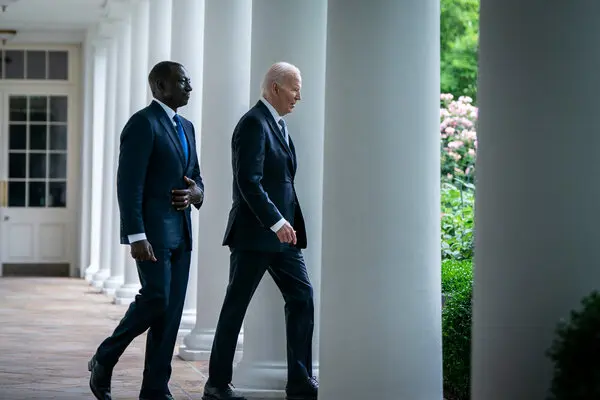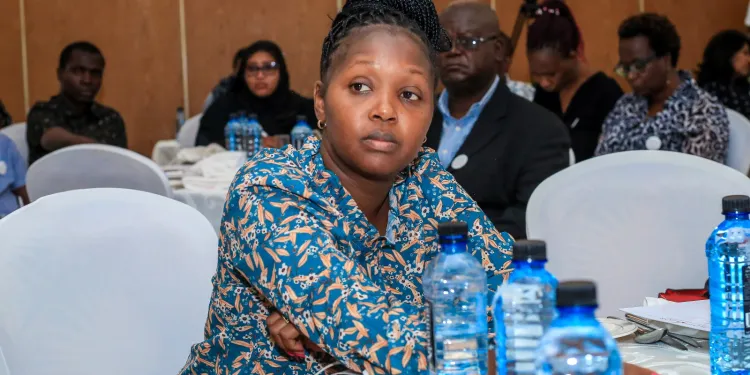Chief Executive Officers (CEOs) in Sub-Saharan Africa are increasingly optimistic about global economic growth, driven by regional factors such as improved economic policies, lower interest rates, increased investments, reduced inflation, and better net exports, according to the 28th PwC Annual Global CEO Survey.
These diverse yet interconnected developments across the continent are fuelling a collective optimism regarding Sub-Saharan Africa’s economic future. According to the survey, 64% of Sub-Saharan African CEOs emphasise strategic decision-making and organisational efficiency as key to their economic viability, a figure higher than global averages. This reflects the need for precise management in challenging markets.
The survey also highlights that 57% of CEOs are concerned about regulatory changes, significantly higher than the global average of 42%, underlining the unique regulatory pressures in the region.
Conversely, rising costs (33%) and strong competition (31%) are major challenges, creating a complex operating environment that necessitates region-specific solutions.
The survey further reveals that 38% of CEOs in Sub-Saharan Africa are more confident about revenue growth than their global counterparts, with 38% moderately confident and 31% very confident. Looking ahead to the next three years, 34% remain moderately confident, while 42% are very confident.
PwC’s survey underscores that business leaders in Sub-Saharan Africa must navigate a complex array of challenges and opportunities. However, they remain optimistic about the future, driven by a combination of regional economic improvements and strategic initiatives. Navigating global forces is reshaping the business landscape, making business model reinvention essential.
Inflation remains a significant concern, with 42% of Sub-Saharan African CEOs feeling vulnerable, compared to 27% globally.
Other critical risks, including cyber threats, workforce skill gaps, and geopolitical conflicts, are more pronounced in Sub-Saharan Africa. Social inequality also presents a considerable challenge, with 17% of CEOs expressing high exposure, compared to just 7% globally.
Strategic Reinvention and Innovation
Reinvention is crucial for adapting to emerging realities and achieving future success. Sub-Saharan African CEOs have been more proactive in their reinvention activities.
- Strategic diversification: 50% of companies have entered new sectors in the past five years, compared to 38% globally.
- Product innovation: 44% of companies have developed innovative products or services, compared to 38% globally.
- Market expansion: 42% have targeted new customer bases, compared to 32% globally.
- Distribution innovation: 36% have explored new routes to market, compared to 25% globally.
CEOs also indicated a more structured approach to decision-making. They are building robust frameworks with higher transparency (83% vs. 76% globally), encouraging diverse viewpoints (79% vs. 62% globally), and considering missed opportunities (77% vs. 61% globally).
Artificial Intelligence (AI) Integration
Sub-Saharan CEOs acknowledge that business model reinvention must include AI and other technological advancements. However, AI adoption rates in the region (75%) lag slightly behind global figures (83%).
Despite this, companies implementing AI are seeing notable efficiency gains, with 56% reporting increased employee productivity and 53% noting improvements in executive time management—both comparable to, or exceeding global benchmarks.
The financial impact of AI adoption shows promise, with 33% of Sub-Saharan African companies reporting revenue increases and 32% seeing profitability gains in the past year. Notably, workforce stability remains intact, with only 13% reporting AI-related headcount decreases, aligning with global trends.
Looking ahead, 72% of CEOs plan to adopt or expand their AI initiatives in the next 12 months (compared to 80% globally). Furthermore, 45% expect AI to boost profitability in the coming year, reflecting measured optimism.
The data suggests that business leaders in Sub-Saharan Africa are taking a balanced approach to AI adoption—prioritising purposeful integration over rapid expansion while achieving comparable efficiency gains.
Sustainability and Climate Considerations
In response to global economic shifts and environmental concerns, CEOs in Sub-Saharan Africa are integrating sustainability into their business strategies. However, challenges remain.
Sustainability in Compensation
Sub-Saharan African CEOs are more likely to have sustainability metrics tied to their incentives (23% vs. 32% globally). Notably, 9% have over 50% of their compensation linked to sustainability metrics, compared to 4% globally.
Despite this emphasis, the region lags in climate-friendly investments (78% vs. 85% globally), with only 15% willing to accept lower returns for such investments, compared to 25% globally.
Among companies making climate-friendly investments:
- 21% reported cost decreases,
- 29% saw cost increases,
- 32% experienced increased revenue,
- 4% saw revenue decreases.
Barriers to Climate Investments
- Lack of demand from external stakeholders: Identified by 27% of CEOs (vs. 24% globally).
- Regulatory and policy challenges: Cited by 26% of CEOs (vs. 27% globally).
- Financial constraints: Reported by 23% of CEOs, aligning with the global average of 20%.
The PwC survey suggests that while Sub-Saharan Africa’s CEOs are making strides in incorporating sustainability into business models, gaps remain in climate-friendly investments.
“To overcome these barriers, it is crucial for Sub-Saharan African business leaders to continue fostering a supportive policy environment, enhancing technical capabilities, and securing financial incentives. By doing so, businesses in Sub-Saharan Africa can drive sustainable growth and contribute to global efforts to combat climate change,” PwC concluded.





